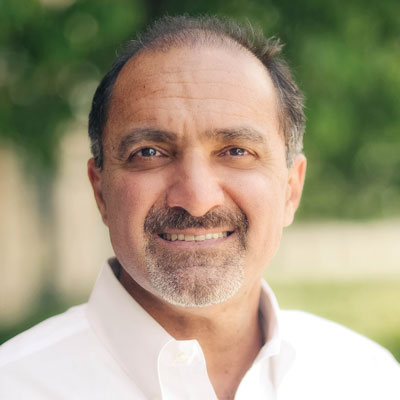Iranian Immigrant Builds Homes and Donates Millions in California’s Central Valley
Date: July 25, 2017
In 1978, Darius Assemi emigrated from Iran to California, seeking an American education and better career opportunities. Today, the entrepreneur and CEO of Granville Homes, in California’s Central Valley, builds an average of 200 homes annually in the greater Fresno region and employs a staff of 80. Over the last 40 years, Assemi has built more than 5,800 houses. And although his company’s annual revenue is $50 million, for Assemi, the American Dream isn’t only about success. It’s about giving back, and having a sense of responsibility for the health and wellbeing of the community.
 “When it is time for us to go to the other side, after death, God will ask us: I gave you opportunity and privilege to live in one of the most beautiful, safest, most prosperous countries in the world. What did you do with those opportunities? How did you take care of your brothers and sisters that are less fortunate?” he says. “At the end of the day, our legacy is how we treat the people around us.”
“When it is time for us to go to the other side, after death, God will ask us: I gave you opportunity and privilege to live in one of the most beautiful, safest, most prosperous countries in the world. What did you do with those opportunities? How did you take care of your brothers and sisters that are less fortunate?” he says. “At the end of the day, our legacy is how we treat the people around us.”
In 2006, Assemi’s company created the Granville Home of Hope fundraiser. The company builds a new home and sells lottery tickets to win the house. The ticket sales are then donated to charitable organizations that provide food, shelter, and education to underprivileged Central Valley residents. In 2016, the project raised over half a million dollars. Granville Homes also supports various scholarships, community health initiatives, and local nonprofits, and has sponsored revitalization projects in downtown Fresno, including a professional center for small businesses and entrepreneurs.
We become more democratic, more entrepreneurial, and are successful when we have a more diverse community.
Born and raised in Tehran, Assemi earned a degree in civil engineering from Fresno State University in 1983, became accredited in Green building techniques, and went to work for his brother’s homebuilding company. As immigrants, their trajectory was hardly unlikely. Immigrants in America are as much as twice as likely, depending on the year, as the U.S.-born are to found new companies. Today the Assemis are among 2.9 million immigrant entrepreneurs providing jobs to some 5.9 million Americans. In Iran, Assemi’s father found two small businesses, in home construction and agriculture.
“We understand the value of hard work,” says Assemi. “What matters the most here is how smart you are and how hard you work. It’s not which family you’re from, or what you’ve been given. Almost everybody has an equal opportunity for success.”
Yet founding a company in a new country was not without hurdles. Assemi found it difficult to establish a foothold and was stigmatized for his Muslim faith. “If you treat people with dignity and transparency, eventually the truth surfaces,” he says. “Instead of having the color of your skin or your country of origin matter, people will judge you by your values, and how you treat the people around you.”
Assemi looks to Silicon Valley as a shining example of how immigrants have strengthened America. To him, it is an ideal worth aspiring to, a model of the nation’s success and one of the reasons he cherishes the United States. “We become more democratic, more entrepreneurial, and are successful when we have a more diverse community,” he says. “That combination of brainpower and our spirit of entrepreneurship has kept the United States on the cutting edge of so many innovations. Our forefathers put policies in place to keep America entrepreneurial and to attract brain power from all over the world.”
Assemi says any approach to immigration reform must balance economic reality with security concerns. He advocates creating a pathway to citizenship for law-abiding residents, regardless of their immigration status, and holding criminals accountable. “Without the 11 million or so undocumented people in the United States, our economy would collapse,” he says, pointing out that undocumented workers are the bedrock of the construction, hospitality, and agriculture industries in Fresno and elsewhere. “We need immigrants to help with the labor force. Immigrants can provide investment and brainpower for the United States, therefore creating more jobs and innovation. If there were no opportunities for people to come here and work, then immigration would stop.”
